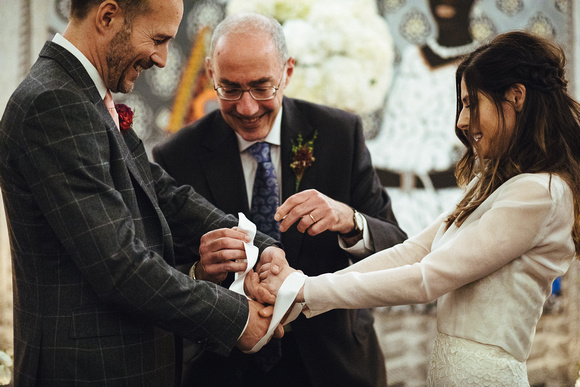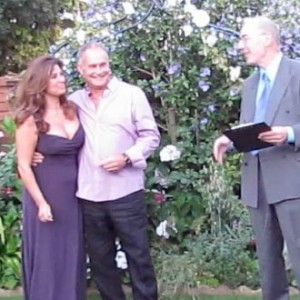You may know the term “officiant” better as “civil celebrant”. Or you may not have even heard of either term!
If you’re planning a life-cycle ceremony like a wedding, it might be well worth your while to make the acquaintance of either. (By the way, the first term is the American version of the second.)
Why might you need one (or the other!)?
If you’re planning your wedding, it may not be a traditional religious service that rocks your boat. In truth, the idea of a register office ceremony may not appeal too much either. Many people shrug and accept it – “that’s the done thing” – but think again: it doesn’t have to be thus.
What does a wedding celebrant do?
A celebrant will give you ideas, listen to yours, develop them and then write a service that incorporates what you want and that reflects your wishes and personality. They then conduct the ceremony professionally on the day.
The best celebrants have three qualities: they listen well, write well and present well. None of those are particularly common in combination, so don’t underestimate this skill-set.
What does a celebrant offer?
- A celebrant will be a trained professional. He (for simplicity, I shall use the masculine throughout) will know what can go into a ceremony and how to structure it, and will be glad to advise and inspire you.
- Celebrants are not usually teenagers or youngsters straight out of college. This is probably not their first job nor is it likely to be their only one at any given time. They usually have some life and work experience, and this can be invaluable for practical and/or imaginative suggestions and advice.
- A good celebrant will take time to listen to you and understand your wishes. If you have an unusual theme or vision, that should not be a problem. The ceremony should reflect your individuality, so it will be tailor-made.
- The celebrant is a kind of choreographer. Depending on your wishes, he can organise entrances and exits, where people stand, how the rituals are enacted and what happens when.
- The celebrant will write a ceremony from scratch. This means that your service will be unique. If the celebrant enjoys writing, he will take trouble to source or compose beautiful and meaningful readings and prayers (as desired). The result will reflect this care and dedication.
- The celebrant will be prepared – indeed, probably keen – to do some research, if you want to introduce something unusual into your ceremony. For example, a particular religious or cultural element.
- The celebrant uses a script. You agree it with him, as you go along. So not only will you have been consulted before and during the creative process but you will not be faced with any unpleasant surprises on the big day. That should be worth quite a lot to your peace of mind!
- Not only does the celebrant need presence but he should be a good presenter. He needs good diction, audibility and the ability to avoid talking in a boring, monotonous drawl. He will be able to project his voice, and vary the pitch, modulation and speed, to bring out the emotion of the moment and involve the audience.
You may well be looking to save some money here and there, and I sympathise entirely. But unless you are very lucky, the chances are that, to find someone who will listen to you, write what you want in a memorable way and present it effectively and professionally, a celebrant will be your answer. (Or an officiant!)
Surprisingly enough, that’s what Michael does for a living! Feel free to contact him for a non-obligation chat.
Main photo: www.lyndseygoddard.com


